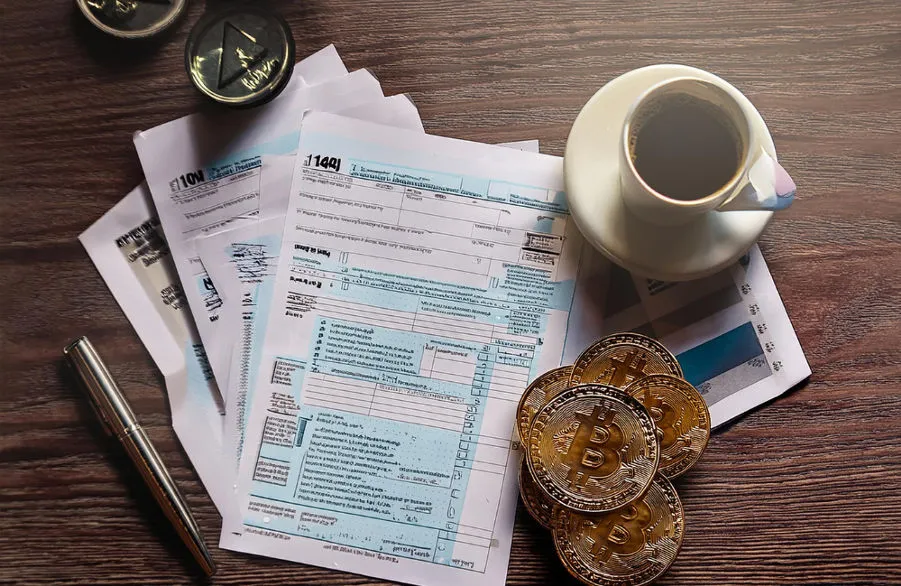Introduction
Le marché thaïlandais des crypto-monnaies a connu une croissance spectaculaire ces dernières années, avec l'un des taux de possession de crypto-monnaies les plus élevés au monde. Avec la montée en puissance des actifs numériques dans le domaine de l'investissement, il est essentiel que les particuliers et les entreprises comprennent les exigences fiscales liées aux crypto-monnaies.
Le gouvernement thaïlandais a récemment apporté des modifications significatives à l'imposition des revenus provenant des crypto-monnaies, ce qui a créé une certaine confusion parmi les investisseurs. Parmi les préoccupations soulevées, la question de la retenue à la source a particulièrement attiré l'attention. Cet article propose une analyse détaillée du processus de déclaration des revenus issus des crypto-monnaies en Thaïlande pour l'année 2024, en abordant les récentes évolutions réglementaires, les exigences de conformité et les stratégies de planification fiscale à adopter.
Veuillez noter que, comme les déclarations fiscales ne s’appliquent qu’en 2025, ces exigences peuvent encore évoluer. Nous vous tiendrons informés des nouveaux changements en temps réel.
Points clés
- Crypto gains from trading or investing are subject to capital gains tax (0% to 35% based on total annual income for individuals).
- Les transactions en crypto-monnaies sont exonérées de la taxe sur la valeur ajoutée (TVA) de 7 %. La Thaïlande impose une retenue à la source de 15 % sur les revenus en crypto-monnaies perçus par des entités étrangères.
- Les contribuables doivent tenir des registres détaillés de toutes les transactions en crypto-monnaies, calculer les gains/pertes imposables et les déclarer dans leur déclaration de revenus.
- Des stratégies de planification fiscale appropriées, telles que le choix du moment pour réaliser les gains et les pertes, ainsi que la compensation des pertes fiscales, peuvent aider à optimiser la charge fiscale sur les crypto-monnaies.
Qu'est-ce que la taxe sur les crypto-monnaies en Thaïlande ?
La crypto-fiscalité désigne les principes d'imposition appliqués aux revenus impliquant des crypto-monnaies et d'autres actifs numériques. Bien que le ministère thaïlandais des Finances classe ces instruments numériques tels que les crypto-monnaies dans la catégorie des « actifs numériques », les politiques fiscales relatives à ces actifs suivent de près l'approche adoptée par d'autres pays, c'est-à-dire qu'ils constituent une forme unique de propriété numérique.
Dans quelle mesure le paysage fiscal thaïlandais en matière de crypto-monnaies est-il établi ?
La Thaïlande a fait preuve d'une attitude progressiste à l'égard des crypto-monnaies, en mettant régulièrement à jour ses lois fiscales afin de les rendre plus claires et de garantir une imposition équitable. Les dernières évolutions du cadre fiscal du pays en matière de crypto-monnaies sont les suivantes :
Taxe sur les plus-values
En Thaïlande, l'impôt sur les gains en capital s'applique aux bénéfices tirés de la vente ou de l'échange de crypto-monnaies, de manière similaire à l'imposition des revenus provenant d'autres actifs immobilisés. Le taux d'imposition applicable pour les personnes physiques qui sont des résidents fiscaux thaïlandais varie de 0 % à 35 %, en fonction du revenu annuel total du contribuable, y compris les revenus provenant d'actifs numériques. Veuillez noter que si les crypto-monnaies sont détenues par une société enregistrée en Thaïlande, celle-ci sera soumise à l'impôt sur les sociétés, dont le taux peut atteindre 20 %.
Exemption de TVA
Pour encourager l'utilisation des crypto-monnaies, le gouvernement thaïlandais a exempté les transactions impliquant ces actifs de la taxe sur la valeur ajoutée (TVA) de 7 %. Cette exonération constitue une incitation majeure pour les commerçants et les investisseurs, rendant les transactions d'actifs numériques plus attrayantes sur le plan financier.
Quel est le processus de déclaration de la taxe sur les crypto-monnaies en Thaïlande ?
Assurer la conformité avec les réglementations fiscales thaïlandaises sur les crypto-monnaies exige une approche méticuleuse de la part des investisseurs.
Les étapes suivantes doivent être soigneusement respectées dans le cadre du processus de déclaration de la taxe sur les crypto-monnaies :
Étape 1 : Enregistrer et organiser vos transactions
La tenue de registres détaillés de toutes les transactions en crypto-monnaie effectuées tout au long de l'année constitue la base du processus de déclaration. Les détails requis comprennent l'enregistrement des éléments suivants :
- la date de la transaction
- le type de transaction (achat, vente, échange, etc.),
- la crypto-monnaie concernée
- le montant de la transaction en bahts thaïlandais,
- les contreparties (le cas échéant), et ;
- tous les frais ou coûts associés.
En pratique, l'échange sera rédigé dans un rapport qui fera un résumé vos transactions annuelles afin de faciliter la déclaration fiscale.
Étape 2 : Calculer votre revenu imposable
Pour déterminer le revenu imposable des crypto-monnaies, il est nécessaire de calculer les gains et les pertes pour chaque transaction. Les contribuables peuvent choisir entre deux méthodes pour déterminer le coût de base de leurs actifs numériques : la méthode FIFO (First In, First Out) ou la méthode MAC (Moving Average Cost).
Concernant les plus-values, la différence entre le prix d'acquisition et le prix de vente est considérée comme un revenu imposable. Les pertes sur une crypto-monnaie peuvent être compensées par les gains réalisés sur d'autres crypto-monnaies, à condition que les transactions aient été effectuées via des plateformes d'échange d'actifs numériques approuvées par la Commission des valeurs mobilières et des changes (SEC) thaïlandaise.
Étape 3 : Remplir les formulaires fiscaux
Les particuliers doivent déclarer leurs gains nets en crypto-monnaies sur les formulaires de déclaration de revenus des particuliers P.N.D. 90 ou P.N.D. 91, en fonction de leur statut fiscal (salarié ou propriétaire d'entreprise). Une déclaration complète et précise de toutes les informations pertinentes est importante pour éviter les éventuelles complications juridiques.
Étape 4 : Soumettre votre déclaration d'impôt
La déclaration d'impôt pour les revenus de crypto-monnaie perçus en 2024 doit être déposée au plus tard le 31 mars 2025 (ou le 6 avril pour la déclaration électronique). Les contribuables peuvent opter pour le système de dépôt électronique proposé par le ministère thaïlandais des finances, réputé pour sa sécurité et sa praticité. Ce système permet de soumettre des copies numériques des documents, évitant ainsi le besoin d'envoyer des copies physiques.
Étape 5 : Conserver les documents pour référence ultérieure
Il faut conserver tous les documents liés aux transactions en crypto-monnaies et aux déclarations fiscales pendant au moins cinq ans. Ces documents jouent un rôle essentiel en tant que preuves lors d'éventuels audits et enquêtes, assurant ainsi une conformité jusqu’à ce que les régulations fiscales sur les crypto-monnaies changent leurs procédures.
Quelles sont les exigences de conformité pour la déclaration fiscale des crypto-monnaies en Thaïlande ?
Respecter toutes les exigences de conformité établies par le Département du revenu thaïlandais est essentielle pour assurer la transparence et faciliter le suivi des mouvements d'actifs numériques. Parmi les mesures de conformité clés figurent :
Déclaration des transactions
Toutes les transactions majeures en crypto-monnaies doivent être déclarées au Département du revenu thaïlandais, indépendamment de leur valeur ou nature. Les seuils de déclaration spécifiques (actuellement pour les transactions supérieures à 1,8 million de THB, soit environ 58 000 $) et les détails requis sont régulièrement mis à jour, nécessitant ainsi que les investisseurs restent informés de tout changement. Cette déclaration est effectuée soit par la plateforme d'échange, soit par la banque, lorsqu'une transaction atteint ou dépasse le seuil de 1,8 million de THB.
Tenue de Registres
Tenir des registres précis est essentiel pour respecter les normes de conformité et gérer efficacement les transactions en cryptomonnaies. Les contribuables doivent maintenir des dossiers complets comprenant :
- Les horodatages des transactions,
- Les adresses des portefeuilles,
- Les relevés d'échange, les valeurs marchandes équitables en Baht thaïlandais,
- Les reçus des coûts ou frais associés,
Comment Préparer Votre Planification Fiscale pour les Cryptomonnaies ?
Pour naviguer dans les complexités de la fiscalité des crypto-monnaies en Thaïlande, il est toujours utile d’adopter une planification fiscale stratégique. Voici quelques stratégies avancées à considérer :
Gains à Long Terme vs. à Court Terme
Si la Thaïlande ne fait actuellement pas de différence entre les taux d'imposition des plus-values à long terme et à court terme pour les crypto-monnaies, il peut être utile de comprendre l'impact des périodes de détention sur les obligations fiscales en général pour optimiser votre situation fiscale.
Planification de Fin d'Année Fiscale
Aligner la réalisation des gains et des pertes avec la fin de l'année fiscale peut efficacement gérer les niveaux de revenus imposables. Il est souvent stratégique de réaliser les pertes vers la fin de l'année pour compenser d'éventuelles plus-values .
Récolte des Pertes Fiscales
Cette stratégie implique de vendre intentionnellement des crypto-monnaies à perte afin de compenser les gains en capital réalisés ailleurs dans votre portefeuille, réduisant ainsi efficacement votre responsabilité fiscale globale.
Puis-je compenser mes pertes provenant de transactions en crypto-monnaies pour réduire mon impôt ?
Oui, il est possible de compenser les pertes liées aux transactions en crypto-monnaies pour réduire le revenu imposable et l'impôt sur le revenu des personnes physiques en Thaïlande.
D'après les directives du ministère thaïlandais des Finances concernant l'imposition des crypto-monnaies, les contribuables peuvent déduire les pertes subies lors des transactions en crypto-monnaies des gains réalisés au cours de la même année d'imposition.
Les règles spécifiques sont les suivantes :
Gains et Pertes en Capital
Les gains ou les pertes provenant de la vente/échange de crypto-monnaies sont traités comme des gains ou pertes en capital à des fins fiscales.
Compensation des Pertes
Les contribuables peuvent compenser les pertes en capital provenant des transactions en crypto-monnaies avec les gains en capital d'autres transactions en crypto-monnaies au cours de la même année fiscale.
Report des Pertes
Si, au cours d'un exercice fiscal, les pertes en capital issues de transactions en crypto-monnaies excèdent les gains en capital, l'excédent peut être reporté sur les exercices fiscaux suivants. Ces pertes reportées peuvent être utilisées pour compenser les gains en capital futurs provenant de transactions en crypto-monnaies, et ce, pendant une période maximale de cinq exercices consécutifs.
Pas de Compensation avec d'Autres Revenus
Les pertes découlant des transactions en crypto-monnaies ne peuvent pas être compensées avec d'autres types de revenus tels que les salaires, les revenus d'entreprise ou les loyers.
Il est nécessaire que les contribuables conservent des registres et des documents détaillés de leurs transactions en crypto-monnaies, incluant les détails des échanges, les dates, les montants et les évaluations en baht thaïlandais, pour pouvoir calculer avec précision les gains ou les pertes.
En outre, les contribuables doivent déclarer leurs gains ou pertes en crypto-monnaies dans leur déclaration annuelle de revenus personnels (Formulaire P.N.D. 90 ou 94*) et s'acquitter des taxes applicables pour pouvoir bénéficier de ces déductions..
*Le PND 94 est un formulaire utilisé en Thaïlande pour déclarer et payer l'impôt sur le revenu personnel pour les six premiers mois de l'année. Il s'applique aux individus ayant des revenus qui ne sont pas basés sur le salaire, tels que :
- Revenus de la location de propriétés (terrains, maisons, etc.)
- Gains provenant d'investissements
- Commissions
- Redevances de droits d'auteur
- Dividendes
Veuillez noter qu'il existe un seuil pour déposer un PND 94. Si vos revenus non salariaux de janvier à juin dépassent 60,000 bahts, vous devrez déposer ce formulaire. La date limite de dépôt est entre le 1er juillet et le 30 septembre de la même année fiscale.
Lire aussi : Avantages de la création d'une société par actions simplifiée en Thaïlande
Nos réflexions
La Thaïlande s'est montrée proactive dans la régulation des crypto-monnaies, en introduisant des mesures favorables telles que l'exonération de la taxe sur la valeur ajoutée (TVA) et la suppression des obligations de retenue à la source. Cependant, les investisseurs doivent rester vigilants quant à leurs obligations fiscales, car les plateformes d'échange enregistrées en Thaïlande sont tenues de surveiller et de transmettre certaines données aux autorités fiscales. Notamment, les transactions dépassant 58 000 USD (environ 1 800 000 THB) peuvent automatiquement être signalées au Département du revenu thaïlandais, entraînant des implications fiscales potentielles.
Vous recherchez un cabinet comptable en Thaïlande ? Vous pouvez nous contacter pour obtenir une consultation avec l'un de nos experts fiscaux.
Cet article est fourni à titre informatif uniquement et ne constitue pas un avis juridique.





